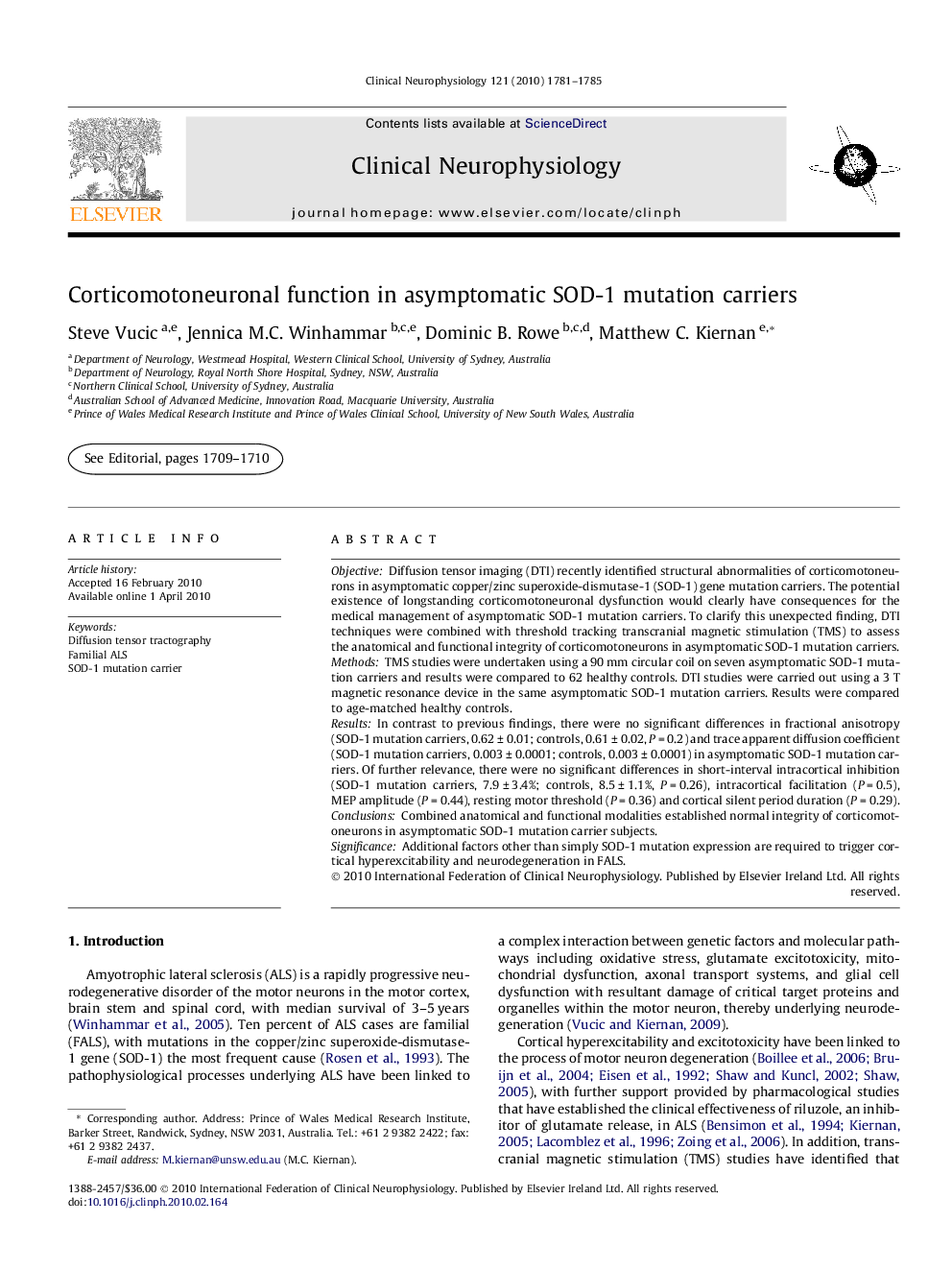| Article ID | Journal | Published Year | Pages | File Type |
|---|---|---|---|---|
| 3045129 | Clinical Neurophysiology | 2010 | 5 Pages |
ObjectiveDiffusion tensor imaging (DTI) recently identified structural abnormalities of corticomotoneurons in asymptomatic copper/zinc superoxide-dismutase-1 (SOD-1) gene mutation carriers. The potential existence of longstanding corticomotoneuronal dysfunction would clearly have consequences for the medical management of asymptomatic SOD-1 mutation carriers. To clarify this unexpected finding, DTI techniques were combined with threshold tracking transcranial magnetic stimulation (TMS) to assess the anatomical and functional integrity of corticomotoneurons in asymptomatic SOD-1 mutation carriers.MethodsTMS studies were undertaken using a 90 mm circular coil on seven asymptomatic SOD-1 mutation carriers and results were compared to 62 healthy controls. DTI studies were carried out using a 3 T magnetic resonance device in the same asymptomatic SOD-1 mutation carriers. Results were compared to age-matched healthy controls.ResultsIn contrast to previous findings, there were no significant differences in fractional anisotropy (SOD-1 mutation carriers, 0.62 ± 0.01; controls, 0.61 ± 0.02, P = 0.2) and trace apparent diffusion coefficient (SOD-1 mutation carriers, 0.003 ± 0.0001; controls, 0.003 ± 0.0001) in asymptomatic SOD-1 mutation carriers. Of further relevance, there were no significant differences in short-interval intracortical inhibition (SOD-1 mutation carriers, 7.9 ± 3.4%; controls, 8.5 ± 1.1%, P = 0.26), intracortical facilitation (P = 0.5), MEP amplitude (P = 0.44), resting motor threshold (P = 0.36) and cortical silent period duration (P = 0.29).ConclusionsCombined anatomical and functional modalities established normal integrity of corticomotoneurons in asymptomatic SOD-1 mutation carrier subjects.SignificanceAdditional factors other than simply SOD-1 mutation expression are required to trigger cortical hyperexcitability and neurodegeneration in FALS.
